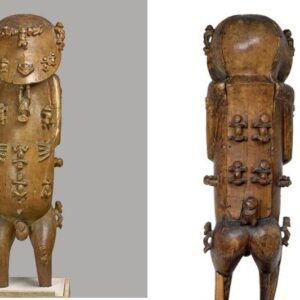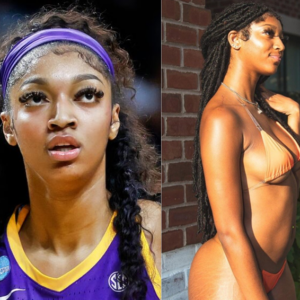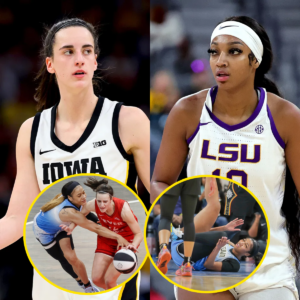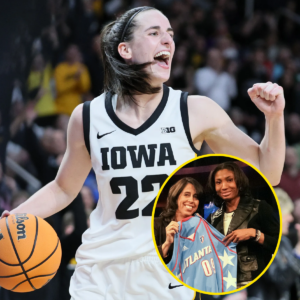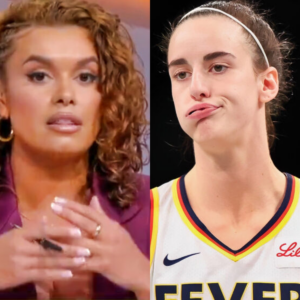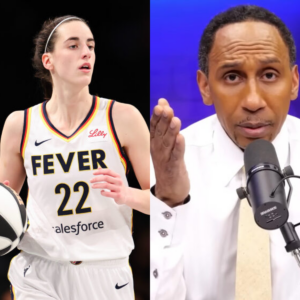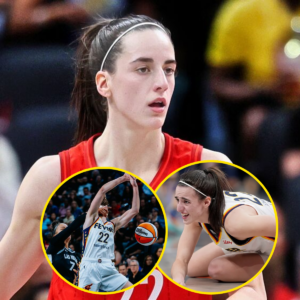Sue Bird can relate to Caitlin Clark’s early frustrations about losing in the WNBA.
But Bird knows from experience how things could change for the much-talked about rookie.
Now 43, Bird came out of UConn where she won two NCAA titles and only lost four games. Clark led her Iowa team to consecutive NCAA Championship games while becoming the NCAA Division I career scoring leader.
Both were No. 1 picks in the WNBA draft — 22 years apart — and landed on last-place teams.
Clark’s Indiana Fever have just one win in their first seven games. Bird, who eventually won four WNBA titles with Seattle, recommends patience for Clark. She recently watched courtside when New York beat Clark and Indiana before more than 17,000 fans at the Barclays Center.
Now a part-owner of the Storm, Bird joins Lisa Leslie (LA Sparks) and Renee Montgomery (Atlanta Dream) as former WNBA players turned owners.
Bird thinks more lucrative broadcast rights contracts and an improved collective bargaining agreement will “dramatically” change the WNBA landscape in the next few years. That may include better salaries, more teams and more players on a roster.
Clark will earn just $76,000 as the No. 1 pick, although she signed NIL deals in college with Gatorade, State Farm and recently with Wilson as a pro. However, many in the WNBA still compete in other countries to supplement their income, given the 2024 veteran super maximum is $241,000.
The NBA has broadcast rights that generate more than $20 billion in revenue, and the 2023 top draft pick Victor Wembanyama earned $12.1 million in his rookie season. The NBA minimum salary is $1.1 million, with Golden State’s Steph Curry the top earner at $51.9 million this year.
Bird spoke with The Associated Press during the recent Business of Women’s Sports Summit in New York City on several topics. Her comments have been edited for clarity and brevity:
Ways the WNBA can grow: Larger rosters, more teams, a G League?
Bird: If I’m being honest, we’ve done our part (as players). The product on the floor has never been better. Now it’s the media rights deal, its on corporate sponsors to continue to show up and view us as an investment. But once we see this media rights deal, assuming its going to be what we all think its going to be, you’re going to see things dramatically change in the WNBA. It will be a whole new world. We have a hard salary cap somewhere in the $1.4 million range. But once the money gets interjected and maybe there’s a soft cap — now we’re talking. The media rights contract is up this year. The CBA has an opt out next year — so by 2026, it could be dramatically different.
What about the expense argument against a WNBA G League?
Bird: I think long term, you want the WNBA to be thriving in a way where people feel like they don’t have to go overseas. But I do still see overseas as a viable option for players who want to continue to play in their offseason and get paid a lot of money. Even if there was a G League, the money would still be better overseas.
Talk about the impact of NIL and how it elevates the brand of athletes?
Bird: I love NIL. I know its complicated in terms of figuring it out — the ways in which schools participate in it, collectives and deals. To me, it’s just growing pains. I’m sure there will be some rule changes as they go, but it will all settle. Kids coming into college have access to the greatest marketing machine in the world — the NCAA Tournament and … being on ESPN. There’s a popularity and you’re connecting with a brand. There’s no better example than Caitlin Clark, who signed a deal with Nike in college and look who followed her to the pros. It impacts the whole ecosystem in a wonderful way.
You’ve done TV commentary with Diana Taurasi, but what’s been the most fun about your post-basketball career?
Bird: Just being able to do what I want. It’s nice to not have to worry that I have to eat by 4 p.m. because my game is at 7 p.m. They see us hanging out on the couch watching the game and that’s exactly what we’d be doing if we were at home with no cameras. We’re trying to get a bigger piece of the pie in terms of coverage, having women cover the sport and former athletes cover the sport.
What content do you and partner Megan Rapinoe hope to highlight with your production company, A Touch More?
Bird: We want to shine a light on those that normally don’t get it — women, women of color. They’re so important and crucial to the backbone of all you see in women’s sports. We’ve adapted a book “Cleat Cute,” it’s an incredibly popular book in the LGBTQ space, into a TV show.
News
The stunning Temple of Garni, Armenia. Built nearly 2,000 years ago.
Nestled amidst the rugged terrain of Armenia stands a testament to ancient splendor: the stunning Temple of Garni. Built nearly 2,000 years ago, this architectural marvel is…
Reviving the Ancient Abu Simbel Temples: Restoration Efforts in Aswan, Egypt, 1968
In 1968, an extraordinary feat of human endeavor unfolded on the banks of the Nile River in Aswan, Egypt. The ancient Abu Simbel temples, standing for over…
Rare and Ancient Sculpture of Lord Ganesha Carved into the Rocks at Raghunandan Hills (Unakoti)
Nestled amidst the rugged terrain of Raghunandan Hills lies a treasure trove of history and spirituality — the rare and ancient sculpture of Lord Ganesha, immortalized in…
African Architecture: The Unique Construction of Djenné’s Great Mosque
In the heart of Mali lies a testament to human ingenuity and cultural heritage: The Great Mosque of Djenné. Built with indigenous materials, primarily mud brick and…
Bronze Spartan Shield from the Battle of Sphacteria 425 BC Displayed at Athenian Agora Museum
Among the many treasures housed at the Athenian Agora Museum, one artifact stands out for its historical significance and the stories it holds: a bronze Spartan shield,…
Enigmatic Pacific Deity: Captivating Polynesian Artistry
In the heart of Polynesia, amidst the whispers of the Pacific winds and the rhythm of ancient chants, lies a testament to the spiritual and artistic richness…
End of content
No more pages to load





